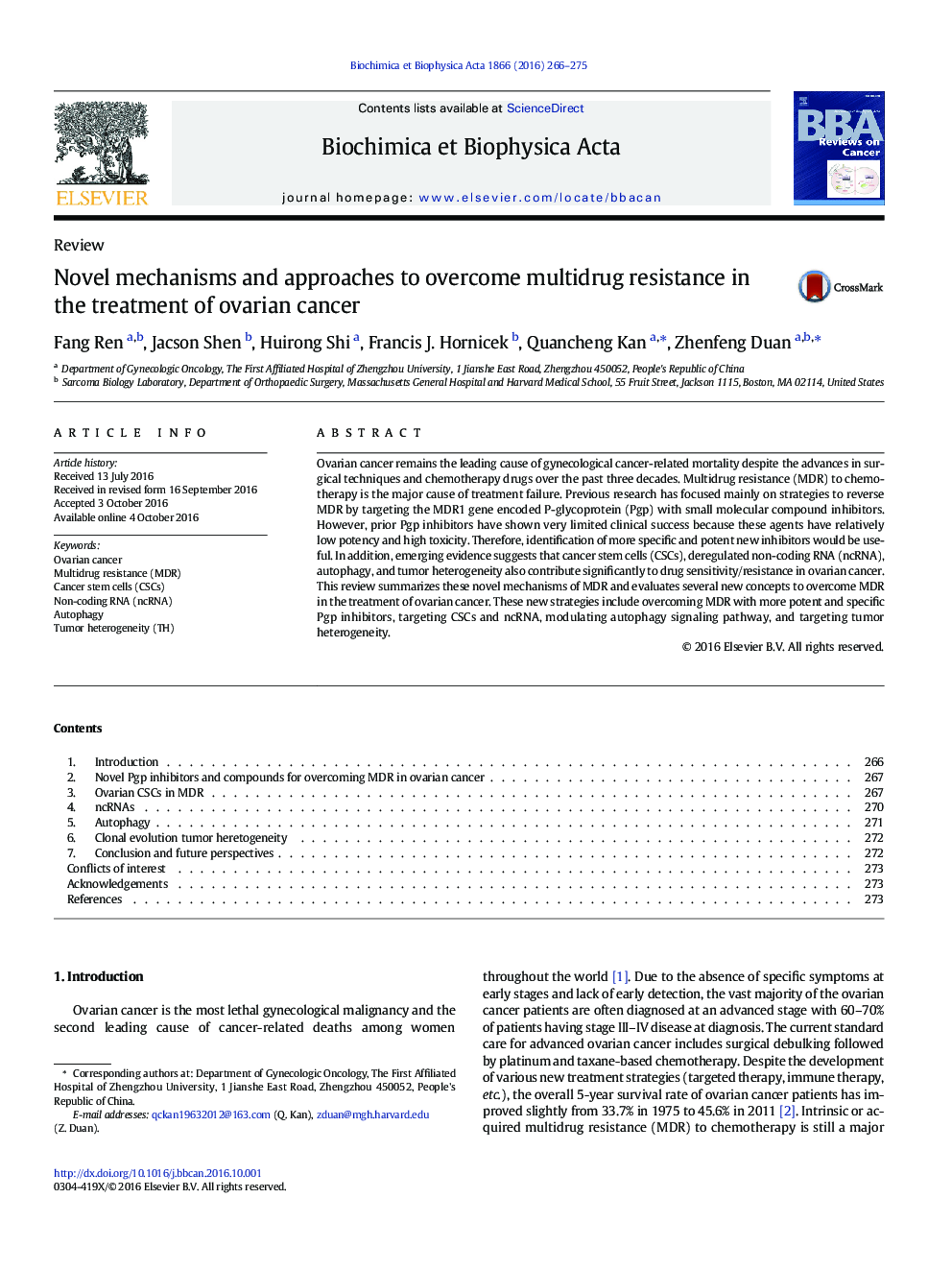| Article ID | Journal | Published Year | Pages | File Type |
|---|---|---|---|---|
| 6481816 | Biochimica et Biophysica Acta (BBA) - Reviews on Cancer | 2016 | 10 Pages |
â¢MDR to chemotherapy is the major cause of the treatment failure in ovarian cancer.â¢CSCs, ncRNA, autophagy, and TH contribute significantly to MDR in ovarian cancer.â¢Targeting these mechanisms hold great potential to improve the clinical outcome.
Ovarian cancer remains the leading cause of gynecological cancer-related mortality despite the advances in surgical techniques and chemotherapy drugs over the past three decades. Multidrug resistance (MDR) to chemotherapy is the major cause of treatment failure. Previous research has focused mainly on strategies to reverse MDR by targeting the MDR1 gene encoded P-glycoprotein (Pgp) with small molecular compound inhibitors. However, prior Pgp inhibitors have shown very limited clinical success because these agents have relatively low potency and high toxicity. Therefore, identification of more specific and potent new inhibitors would be useful. In addition, emerging evidence suggests that cancer stem cells (CSCs), deregulated non-coding RNA (ncRNA), autophagy, and tumor heterogeneity also contribute significantly to drug sensitivity/resistance in ovarian cancer. This review summarizes these novel mechanisms of MDR and evaluates several new concepts to overcome MDR in the treatment of ovarian cancer. These new strategies include overcoming MDR with more potent and specific Pgp inhibitors, targeting CSCs and ncRNA, modulating autophagy signaling pathway, and targeting tumor heterogeneity.
